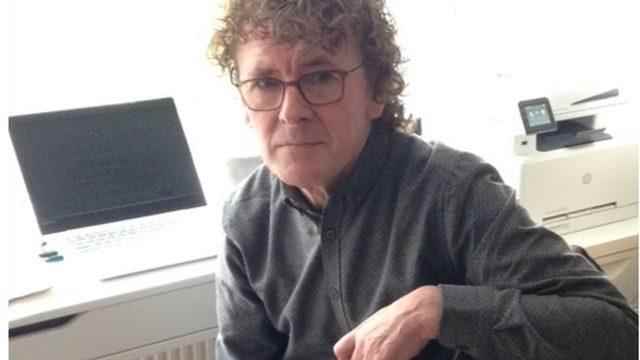Barney Angliss has spent most of his life trying to fit in with society. It was only when he was diagnosed with autism at the age of 49 that he understood why he was having such a hard time doing this.
As a child, Barney remembered his parents not wanting to enroll him in a new school. “They thought they were going to ostracize me to death,” he said.
Although he was good with words, he did not have many friends. He said he lacked empathy and social skills.
When he was old enough to have his own family, job, and home, the “catastrophe thoughts” he was wrestling with began to intensify.
He was increasingly feeling depressed and inadequate, and his physical health was also being affected. Asthma attacks began to become regular.
Finally, at his wife’s suggestion, he agreed to see a psychologist and Barney was diagnosed with Asperger’s syndrome.
With this diagnosis, Barney’s ineptness in social matters and his constant search for order fell into place. “This diagnosis allowed me to explain all my failures,” he said.
Robert Greenall, 53, who works as a journalist for the BBC, also recently learned that he has autism.
“All my life I’ve wondered why I didn’t fully understand other people, why they couldn’t put me anywhere,” he said.
He was used to hearing phrases like “You’re an enigma” or “You’re definitely from another planet.”
For a long time, he thought that his unusual state had something to do with being an only child, being sent to boarding school, or having a lonely childhood.
While Robert Greenall loves to study maps and read about railways; peers found him strange, made fun of him, and made fun of him for failing in sports.
When he was an adult, he always had difficulties in social communication. Conversations at parties were also a nightmare for him. She kept wondering why she couldn’t read people’s feelings and show empathy like others.
‘I felt like an alien’
He just couldn’t figure out what was wrong with him. Until you watch a TV show about autism:
“I too had a common perception that people with autism were either severely disabled people who lacked the ability to communicate, or were freaky computer wolves.
“But when I watched that documentary, when I saw people who seemed perfectly normal were diagnosed with autism, and realized how much I had in common with these people, I had a total enlightenment.”
Robert says he felt tremendous relief after being diagnosed with autism:
“I finally had an idea of what it was that had made me feel like an alien for so many years. Now I could stop feeling bad about being different.”
Barney and Robert are just two of many adults who spend most of their lives not knowing why they are different.
Autism was only classified as a mental disorder in 1980, and people born before that date lived for years without being properly diagnosed.
Anna Bailey-Bearfield, from the British National Autism Association, says that approximately 700,000 people are thought to have autism in the UK alone, and the number of people with this diagnosis is increasing day by day. “Autism is thought to only affect children. However, we see more and more adults on television these days saying that they have been diagnosed with it,” he says.
Anna Bailey-Bearfield says that living in your 40s or 50s without a diagnosis can have extremely traumatic effects, and people can feel socially isolated and nervous.
‘I couldn’t move on with my life’
It took 18 months for Robert Greenall to be diagnosed. After a process that went back and forth, resulting in countless phone calls and many disappointments, she finally decided to go to a private clinic.
“I wanted to close this case now. It was starting to feel like I couldn’t go on with my life,” says Robert.
He went to the clinic, where he paid about 2 thousand pounds, and first answered the questions asked to him for six hours:
“Many of the questions made me reminisce about forgotten childhood memories. For example, what did I like to touch the most? Would I walk down the stairs in an awkward way?”
As a result of the tests, Robert was diagnosed with autism spectrum disorder.
“They haven’t made a more detailed diagnosis than that because there is so much confusion about definitions and that’s why experts avoid any definitions,” says Robert.
A study by Anglia Ruskin University showed that being diagnosed with autism spectrum disorder at an advanced age can have a very positive impact on a person.
Interviewing nine people over the age of 50, Dr. Steven Stagg says this gives people the opportunity to “let go of impossible struggles and look at their own identity in a new light.”
While for one this is like an “Eureka Moment”, which makes him realize that his strange behaviors are not his fault, for another, being diagnosed with autism provides a relief in terms of making sense of many things.
But for many people, this diagnosis brings with it great regret.
Barney, for example, realized how much pain not only he but also those close to him suffered when he was diagnosed:
“Looking back now, I can’t believe I was a teacher. I lacked confidence, I couldn’t communicate with people. Then I turned into a stress-ridden father. My health deteriorated, my relationships deteriorated.
“The diagnosis of Asperger’s was a turning point in my entire life. This diagnosis gave birth to a completely different me.”

He cites organizing a strike with other teachers at the school as one of the key events marking this change.
While he used to have a hard time making friends, now he has hundreds of friends; he says that he can reveal himself without hiding who he is, even if he sometimes has trouble communicating.
Nowadays, he spends most of his time reading, researching, writing, learning, teaching, organizing festivals and giving speeches to raise awareness about autism.
Barney is no longer afraid to talk about what makes him who he is.
fishes and sweaters
For example, touching raw fish is one of her favorite things, and she remembers how she sliced fish for her mother as a child:
“Fish has a texture, and so does chicken. Depending on how you cut it, the feeling you get when you touch it changes. I loved discovering that.”
Another thing he loves a lot is sweaters. She points to the tiny herringbone knit of the sweater she’s wearing right now.
He has a total of 25 sweaters like this, all of them have such little details that he likes very much.
Robert, on the other hand, is still trying to get used to his diagnosis and how it will affect his life. But when one of her friends said she was proud that she now has an autistic friend, she liked it very much.

What is autism?
Autism is a disorder that affects how a person communicates with other people, develops relationships with them, and experiences the world.
People diagnosed with autism see, hear and feel the world differently than other people.
It is thought that they are particularly troubled in certain matters. For example:
- Ability to read and interpret facial expressions or tones of voice
- Having trouble making friends
- Too little or too much sensitivity to sound, touch, or light
- Excessive attachment to routine and order
- seem insensitive
- Being perceived as having strange behavior
One person with autism may have very different symptoms than another, and each may need a different type of support. Some may also have mental health problems and learning disabilities.
